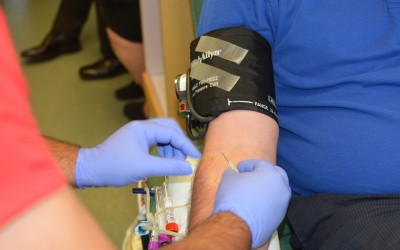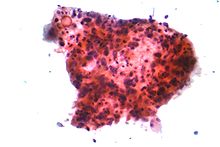(advertisement)
Changes To Your Personal Appearance Following Diagnosis
Cancer treatments are known to cause side effects, but changes to your personal appearance can affect your confidence.
A person is diagnosed with cancer every two minutes in the UK. This amounts to around 360,000 new cases per year, but the good news is that 50% will survive the condition for at least 10 years. Typical treatments include surgery, chemotherapy and radiation therapy to reduce or remove the cancer from your body, and commonly a combination of methods is preferred. The success rate of each treatment depends largely on the stage of the cancer as well as whereabouts in the body it is located. But regardless, those going through cancer treatment can find it to be a gruelling and overwhelming process. One of the aspects of cancer that can be hard to get to grips with is the toll that it will take on your physical appearance. Here are some of the changes that patients typically experience.
Losing A Part Of Your Body
Any physical changes as a result of cancer can make you feel vulnerable or lacking in confidence, even if they occur in areas that aren’t visible to others. If you’ve lost a breast, then you might opt for reconstructive surgery. In other cases, if another part of your body such as arm or leg has been removed, you might consider using a prosthetic aid to assist you.
Hair Loss
One of the most recognisable side effects of chemotherapy, or radiation therapy to the head, is the loss of hair, which includes eyebrows and eyelashes. Losing your hair quickly can be distressing and make you feel self-conscious, but in many cases it will start to grow back at its normal rate, one month following the end of chemo. Whilst you’re waiting for it to return to its normal length, natural hair wigs can give you more confidence and can be made to replicate your existing hairstyle so that you still feel like ‘you’.
(advertisement)
Weight Gain and Weight Loss
Some treatments including the use of steroids and hormone therapy may cause you to put on weight. Additionally, the treatment itself can be quite tiring, which may make you less active than usual, consequently putting on weight. Although it’s important to maintain a healthy BMI, it’s also essential that you look after yourself mentally, so try not to give yourself a hard time if you’re a little heavier than you’d like to be. Talk to your GP or consultant about the right approach to losing weight healthily in the midst of your treatment plan.
As well as weight gain, some forms of cancer will lead to weight loss. Bowel and stomach cancer can make it very hard to eat and digest enough food to maintain your current weight and the result will be weight loss.
Scarring
When you have cancerous growths removed from your body, some patients can worry about the cosmetic appearance caused by the procedure. It’s important to try and remember that scarring is a positive part of the healing process. Make sure you follow your doctor’s post-op instructions, which might include keeping the wound moist to encourage more rapid healing.
Coping with a changed appearance is just one of the many aspects involved in a cancer diagnosis, but it’s easier to feel better about your body if your mind is onboard too. So, take the time to support yourself mentally, accepting offers of help and utilising the networks of resources that are there for you at this time.
(advertisement)




